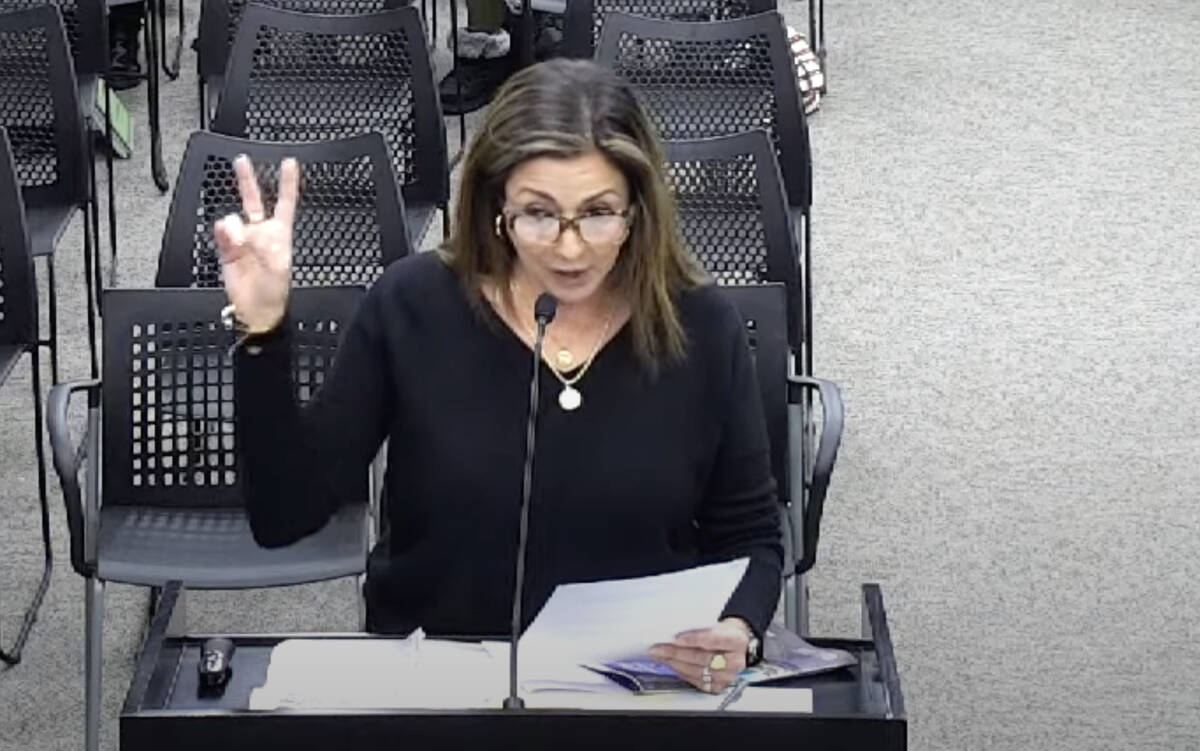
It may not have been the shortest city council meeting in Boulder City history but at barely an hour and a quarter, it was definitely shorter than usual.
After a request from the city clerk to remove an item that would change some verbiage in city code regarding emergency management in order to align said verbiage with the official Emergency Operations Plan and update some job titles to, again, align with actual titles, the issue that bookended the meeting was brought up.
It’s the Great Debate about the state-mandated Presidential Preference Primary vs. the “don’t tell us how to run our business” GOP caucus.
For those who don’t follow politics, some background.
In 2021, the Democrat-dominated Nevada State Legislature voted to replace presidential caucuses with primaries. The drive to make this change took place after chaotic Democratic primaries in both 2016 and 2020.
The state Republican party sued to stop the bill from taking effect. They lost. At that point, they announced that the party would not participate in the primary and would, instead, hold their customary caucus.
A caucus is an old-school method that political parties have used for more than two centuries to choose candidates. In a caucus, members of the party gather in locations around the state where each member publicly identifies their preferred candidate. If no candidate receives a majority of the votes, then the candidate with the fewest number of votes is eliminated. The eliminated candidate’s supporters can then transfer their support to one of the remaining candidates and a new tally is taken. That process is repeated until one candidate has enough votes to win. Conversely, a primary is much more straight-forward. You go to a polling place or, increasingly, fill out a mail-in ballot stating your preferred candidate. The ballots are counted and a winner declared.
To make it even more complicated, the state GOP declared that any candidate whose name appeared on the ballot for the official primary would be excluded from the caucus. This resulted in a situation in which several candidates who chose to be part of the primary were cut off from the caucus which is the mechanism by which the state party will actually assign delegates to the national convention which is where the final nomination of their candidate will take place.
How does this all affect Boulder City?
Recently, the city distributed some information that was, while not erroneous, incomplete. The info was posted online and was included in the utility bill for every ratepayer in the city. The info was included in a monthly column in the BCR called City Talk, which is penned by various members of city staff. The info talked about the upcoming primary, scheduled for Feb. 6 but did not mention that there is also a Republican caucus scheduled for Feb. 8.
When BC Republicans cried foul, corrections were made. However, no mistake was acknowledged. The correction laid out the information about the primary and how it was distributed by the city and then said, “Since that time, it has come to our attention…” This despite the fact that the caucus vs. primary debate and lawsuits have been in the news for more than a year and the state Republican party announced its intention to go ahead with a caucus last summer.
The meeting started with Bookend Number One: An announcement read by Councilmember Steve Walton in which he emphasized that AB126, the state law mandating a primary, was a “bipartisan” bill. Which is not wrong. Both Democrats and Republicans voted for it. But Legiscan, which bills itself as an “impartial and non-partisan legislative tracking and reporting service,” lists it as a partisan bill. And in the final vote, by more than 2-1, Republican legislators voted against AB126.
Bookend Number Two came in the form of of public comment from Norma Vally, who is the publicity and community relations chair of the group Boulder City Republican Women. (Note: The print version of this story misidentified Vally as the president of the group. Jennifer Tuggle is actually the president of the group.)
Vally focused on the language used in the corrections issued by the city.
“When facts are wrong, a proper retraction states the facts that were wrong and the correct facts are then given,” she said.
Using air quotes around the word “correction,” Vally continued.
“The correction press release did not come out and say that what they did and said was wrong or cite the multiple locations where this wrong information was announced. Instead, the verbiage used was, ‘Since that time it has come to our attention,’ etc. as if this was recent public information.”
Vally then thanked city staff for their efforts in correcting the initially misleading info.
After Vally concluded, seeing no other people in chambers wishing to speak, Mayor Joe Hardy moved to adjourn the meeting only to be reminded by the city clerk that the agenda called for the regularly scheduled period for reports from individual council members. To which Hardy replied, “Awww maaan.”
The reports came but were much quicker than the norm with most centering on the rash of graffiti that appeared around the city Tuesday morning. (See coverage and a picture on page 6.)